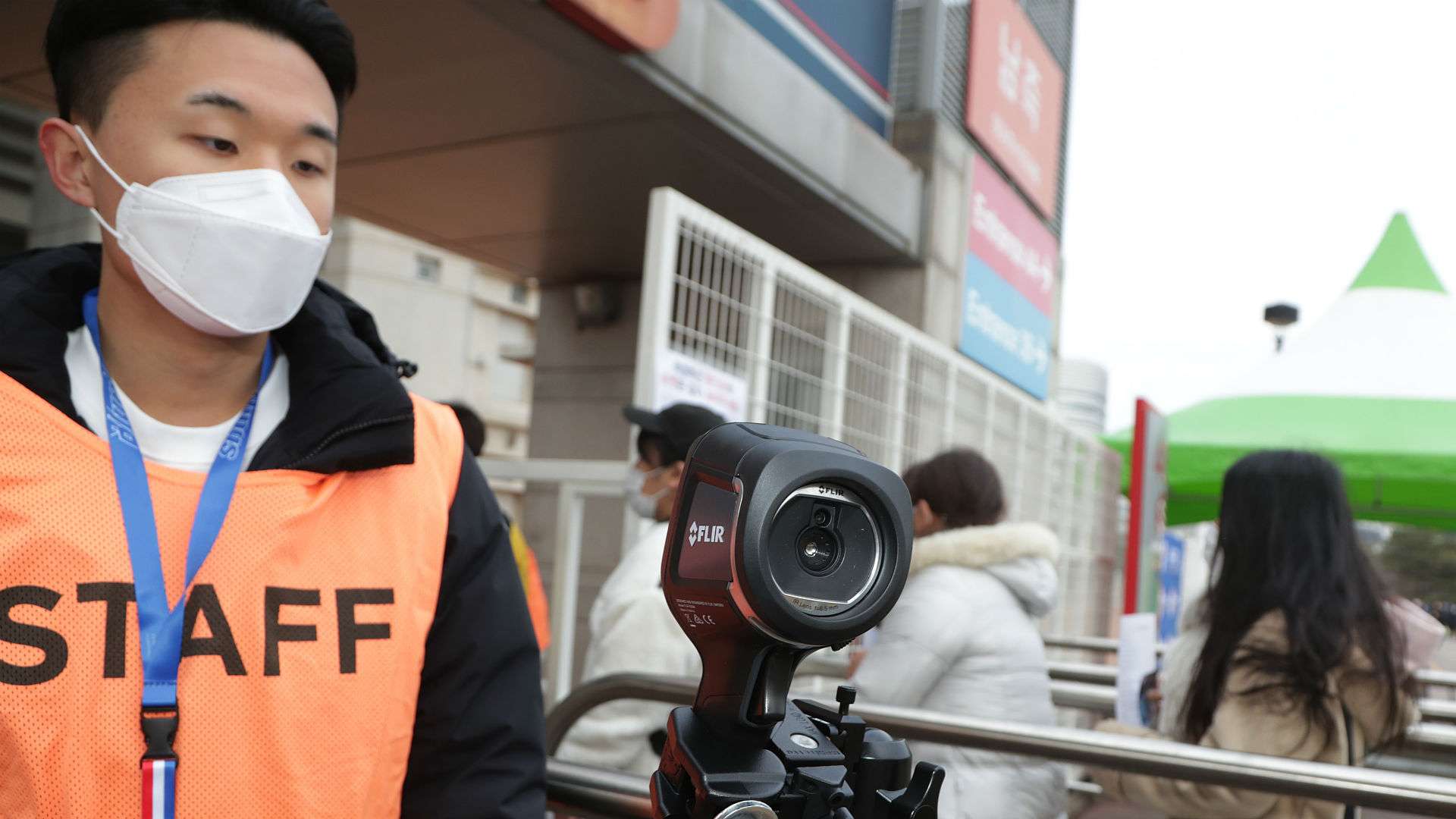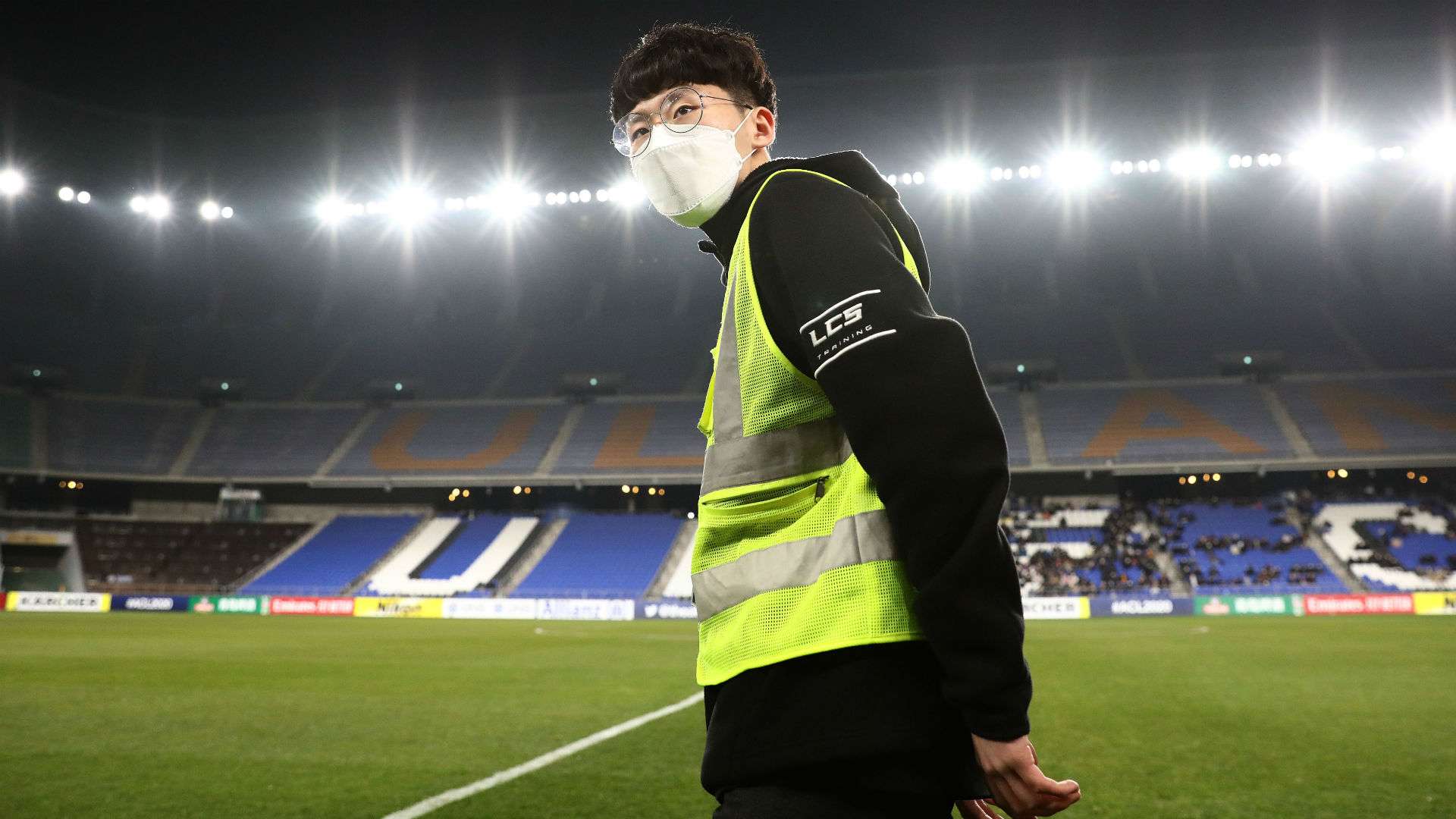As Europe nears two whole months without football following the coronavirus outbreak, one of Asia's biggest leagues is set to provide an early glimpse into how the game will look once it returns.
With professional football already resuming in Chinese Taipei, South Korea is set to follow next when the K-League season kicks off on May 8.
Despite being geographically close to where Covid-19 originated, South Korea managed to avoid the worst effects of the virus with just over 10,000 infections and 250 deaths to date.
South Korea’s success in tackling the virus has been largely thanks to extensive testing and effective tracing of those infected - two measures the K-League will be looking to make the most of when football comes back.
Every player and match official was recently tested for coronavirus - with only negative results returned - as the competition was allowed to move ahead.
Such rigorous testing will remain in place and should a player test positive, their entire team will be quarantined for two weeks.
Matches will also be played without fans for the foreseeable future - though the South Korean government further loosened restrictions on May 6, opening schools and museums - which could mean football fans are allowed back sooner than expected.
Prior to the suspension of football around the world, K-League side Suwon Bluewings hosted an Asian Champions League game with fans in attendance required to fill in a health statement, get their temperature checked, use hand sanitiser before entering the stadium and wear masks throughout the game. Similar measures will likely be implemented again when fans are allowed back in the stands.
 Getty Images
Getty Images
The K-League season was supposed to start in early March but never got going due to Covid-19, with the entire campaign now cut down from 38 to 27 matches and the threat of relegation remaining despite the shortened season.
On the pitch, players aren’t allowed to spit, shake hands and have even been discouraged from talking to one another to reduce the potential spread of coronavirus.
“Things like not spitting during the game, we can do no problem but not talking to teammates is impossible,” Incheon United captain Kim Do-hyeok told reporters last month.
“If we can’t have conversations on the field, we may as well not play soccer at all.”
Managers must also wear a face mask at all times, something Suwon coach Kim Do-gyun admits makes his job that much harder on the sidelines.
“It’s true that it is uncomfortable when you are trying to give instructions during the game,” Kim said. “At the moment, however, these are things that you have to do.”
With a severe lack of live football worldwide, broadcast interest in the K-League has reached unprecedented heights with deals struck in 10 overseas markets from China to Croatia. Media interest has also come from Australia, Germany, France, Italy and the United States as broadcasters look to get some football back on their screens.
Football-starved fans won’t be the only ones watching the K-League closely however, with a number of competitions in Europe set to keep a close eye on how South Korea’s post-coronavirus football experiment goes.
The Bundesliga, Premier League and Serie A all remain intent on finishing their current seasons, despite the Eredivisie and Ligue 1 deciding to pull the plug on their campaign.
A number of question marks remain over how football can be played safely in a world still coming to grips with such a deadly pandemic and the K-League could well provide some clarity on that in the near future.




